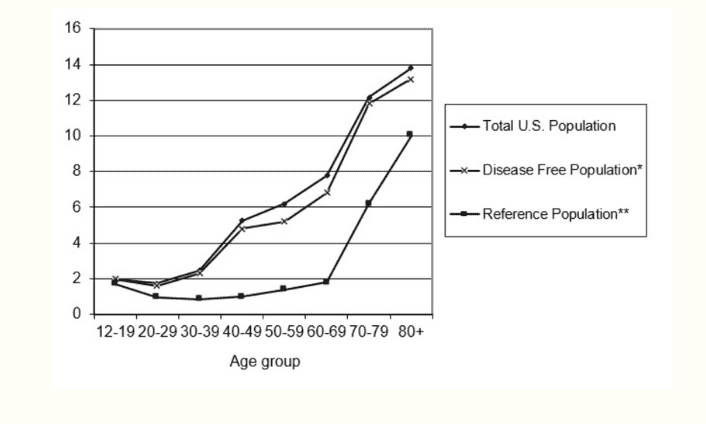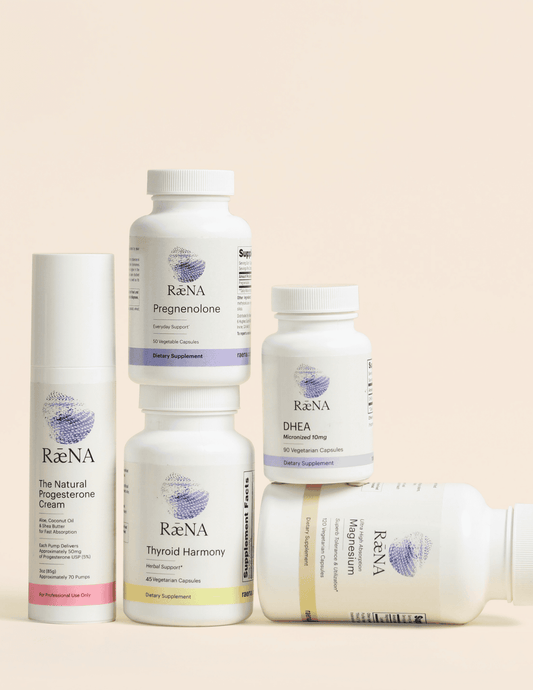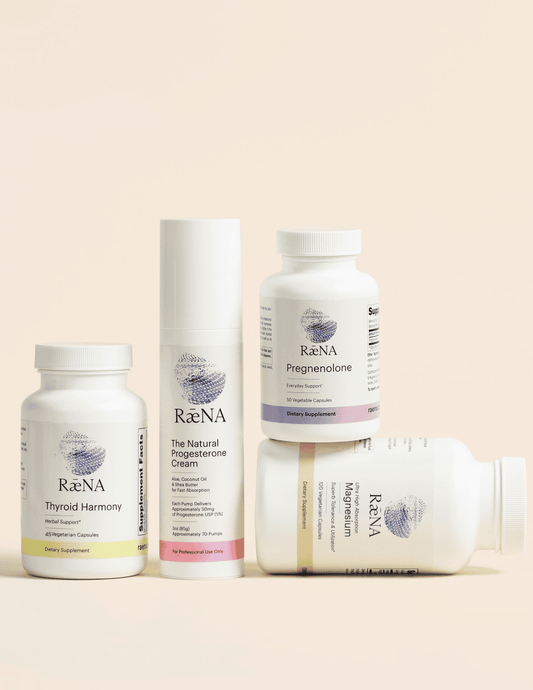
Exploring Hormonal Changes: Does Thyroid Production Decrease During Perimenopause?
daniel garcia
Did you know that perimenopause can affect your thyroid function? ????♀️
One of the key factors at play is progesterone. During perimenopause, progesterone production takes a nosedive, sometimes dropping to near-zero levels, several years before menopause. ????
But here’s the twist: the decline in progesterone levels can disrupt your thyroid’s function! ????♀️
Progesterone deficiency can impact the thyroid’s ability to do its job properly. So when progesterone is low, it can throw off the amount of the thyroid hormones that are produced. ????
The key takeaway? Your thyroid and hormones work together like a synchronized dance - they depend on each other for smooth performance. If you’re in perimenopause, it’s essential to keep an eye on this dynamic relationship. ????????
Research indicates that the occurrence of an underactive thyroid gland, which leads to inadequate production and release of thyroid hormones, tends to increase with age. It's not a coincidence that hypothyroidism is more prevalent among older individuals, especially in women, compared to their younger counterparts.


Why does this happen?
One reason is progesterone deficiency. It’s normal for women to experience a significant decline in their progesterone production, often reaching near-zero levels, at least 6-8 years before they enter menopause. The decline in progesterone levels before menopause can disrupt thyroid function. This happens because progesterone deficiency can hinder thyroid hormone secretion. Since the thyroid controls bone metabolism and repair, this hormonal interplay has significant implications for women's health. How to address this issue? Start by testing your sex hormones and thyroid hormones. However, it's not just about the tests; pay attention to how you feel as well. If you experience symptoms like persistent coldness in your hands, fatigue, and difficulty losing weight, it might indicate that your body isn't effectively utilizing thyroid hormones at a cellular level. Consider targeted supplementation and lifestyle changes. Aging often leads to a natural decline in hormone production, and replenishing what's needed for our physiological well-being can contribute to a healthier, more vibrant life.Hormone Supplement Cheat Sheet: Progesterone
Progesterone is one of the most important hormones in the human body. When might you consider supplementing progesterone?- To address hormonal imbalances
- PMS symptoms
- Menstrual irregularities
- Perimenopause and menopause
- Supporting fertility and a healthy pregnancy
- Easing mood swings and anxiety
- Breast cancer and endometrial hyperplasia
- PCOS
- Hypothyroidism
- Fibrocystic breasts
- And more
Reasons why it is important to address low progesterone:
- Low progesterone levels can lead to mood swings, anxiety, and depression
- Low progesterone levels can cause irregular menstrual cycles.
- Progesterone is involved in maintaining healthy bones and low progesterone levels can increase the risk of osteoporosis
- Progesterone allows the thyroid glands to secrete its hormones
- During menopause, when estrogen levels decline, maintaining adequate progesterone becomes crucial
- Progesterone helps regulate metabolism and can influence weight management
- Progesterone has a calming effect on the central nervous system, which can positively impact sleep quality
- The brain has high concentrations of progesterone, and progesterone is protective to the brain
- Progesterone’s anti-estrogen effect has been successfully used to treat uterine and breast cancer
- For some women, hormonal fluctuations, including low progesterone levels, can trigger migraines
- Progesterone has cardiovascular benefits, including its role in promoting healthy blood clotting and regulating blood pressure
- Without sufficient progesterone, the uterine lining may become too thick, leading to a condition known as endometrial hyperplasia
Fast Facts: Progesterone
- Major tissues affected by progestogens include the uterus, vagina, cervix, breasts, testes, and brain.
- Progesterone is produced from cholesterol with pregnenolone as a metabolic intermediate. A deficiency of thyroid, vitamin A, and LDL-cholesterol can also prevent the synthesis of progesterone. (Precursors of progesterone include LDL, VLDL, HDL and cholesterol).
- Progesterone productions declines with age.
- Progesterone is protective for cells and the brain.
- Progesterone exerts an overall protective effect on breast tissue.
- Cell proliferation depends directly on the estrogen-progesterone ratio in breast tissue and is lower in the luteal phase than in the follicular phase.
On Taking Progesterone
- Does taking natural progesterone change your body’s ability to synthesize it?
- When should women take progesterone?
- How it’s made:
- Look out for progesterone with titanium dioxide and peanut oil.

